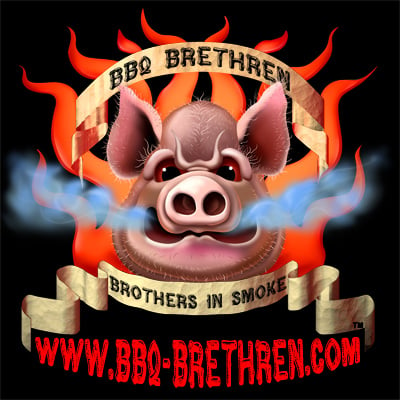Shaunvdv
Knows what a fatty is.
I’m looking for some advice. I live about 5,000’ in elevation and cooks take a lot longer. I’m wondering if anyone can help me figure out if there is a way to speed it up a bit or if I just need to accept the fact that cooks take longer.
Here’s an example. I decided to try cooking my first brisket on Christmas. I know, probably not a great idea. I also chose to make a prime rib just in case the brisket wasn’t going to be ready for 6:00 dinner. Glad I did so. I cooked an 8 lb brisket flat at 225-260 on my OK Joe highland smoker. I started the grill at 5:00 am and put the meat on at 6:00am. I ended up taking the brisket off the pit at 8:00pm (IT 165), wrapped it, and put it in the oven at 250 until it hit 202 IT. The stall was at 165 degrees. It sat there and also dropped to 154 for a while. After about 4 hours of starting the stall, I decided to put it on the oven. The brisket ended up hitting 202 at 2:00 am. That means that the 8 lb brisket flat took 20 hours to cook. I let it rest for 5 hours in a Yeti cooler. It was delicious for breakfast but took quite a bit longer than expected.
Is that normal for an 8lb brisket flat? From what I had been reading it should have been a roughly 8-10 hour cook. I gave myself 12 hours to allow some testing time.
I have found that pretty much every cook I do takes double the time that bbq books say it will take. Is that normal? Is it safe? Is there anything else I can do to help it?
Here’s an example. I decided to try cooking my first brisket on Christmas. I know, probably not a great idea. I also chose to make a prime rib just in case the brisket wasn’t going to be ready for 6:00 dinner. Glad I did so. I cooked an 8 lb brisket flat at 225-260 on my OK Joe highland smoker. I started the grill at 5:00 am and put the meat on at 6:00am. I ended up taking the brisket off the pit at 8:00pm (IT 165), wrapped it, and put it in the oven at 250 until it hit 202 IT. The stall was at 165 degrees. It sat there and also dropped to 154 for a while. After about 4 hours of starting the stall, I decided to put it on the oven. The brisket ended up hitting 202 at 2:00 am. That means that the 8 lb brisket flat took 20 hours to cook. I let it rest for 5 hours in a Yeti cooler. It was delicious for breakfast but took quite a bit longer than expected.
Is that normal for an 8lb brisket flat? From what I had been reading it should have been a roughly 8-10 hour cook. I gave myself 12 hours to allow some testing time.
I have found that pretty much every cook I do takes double the time that bbq books say it will take. Is that normal? Is it safe? Is there anything else I can do to help it?
Last edited:





